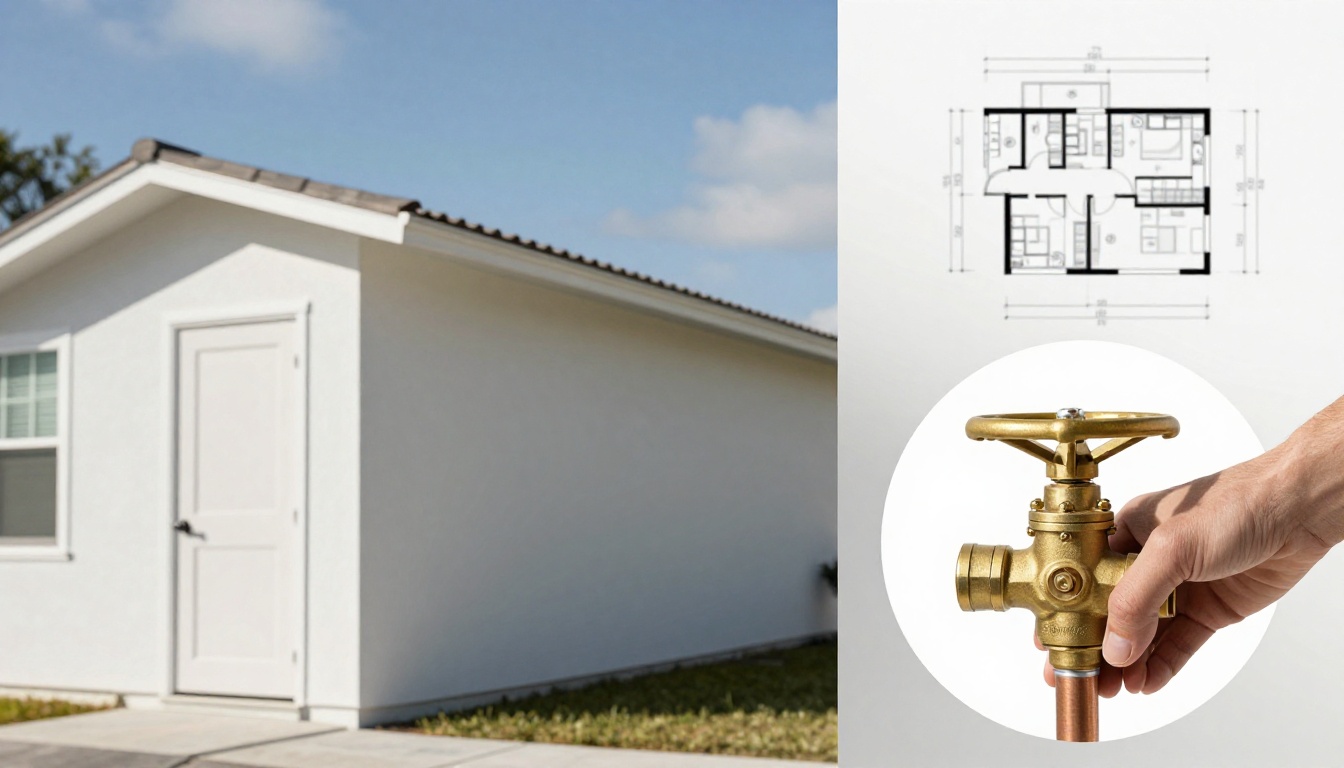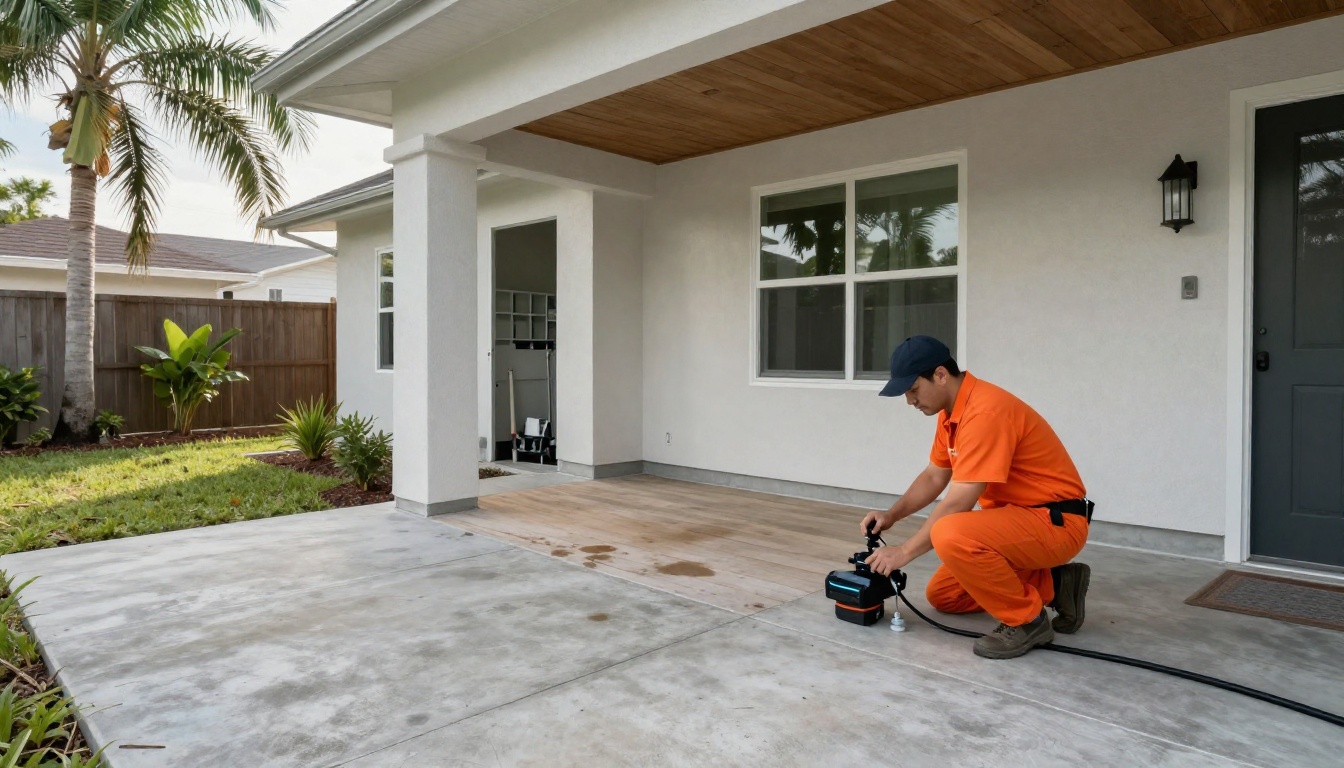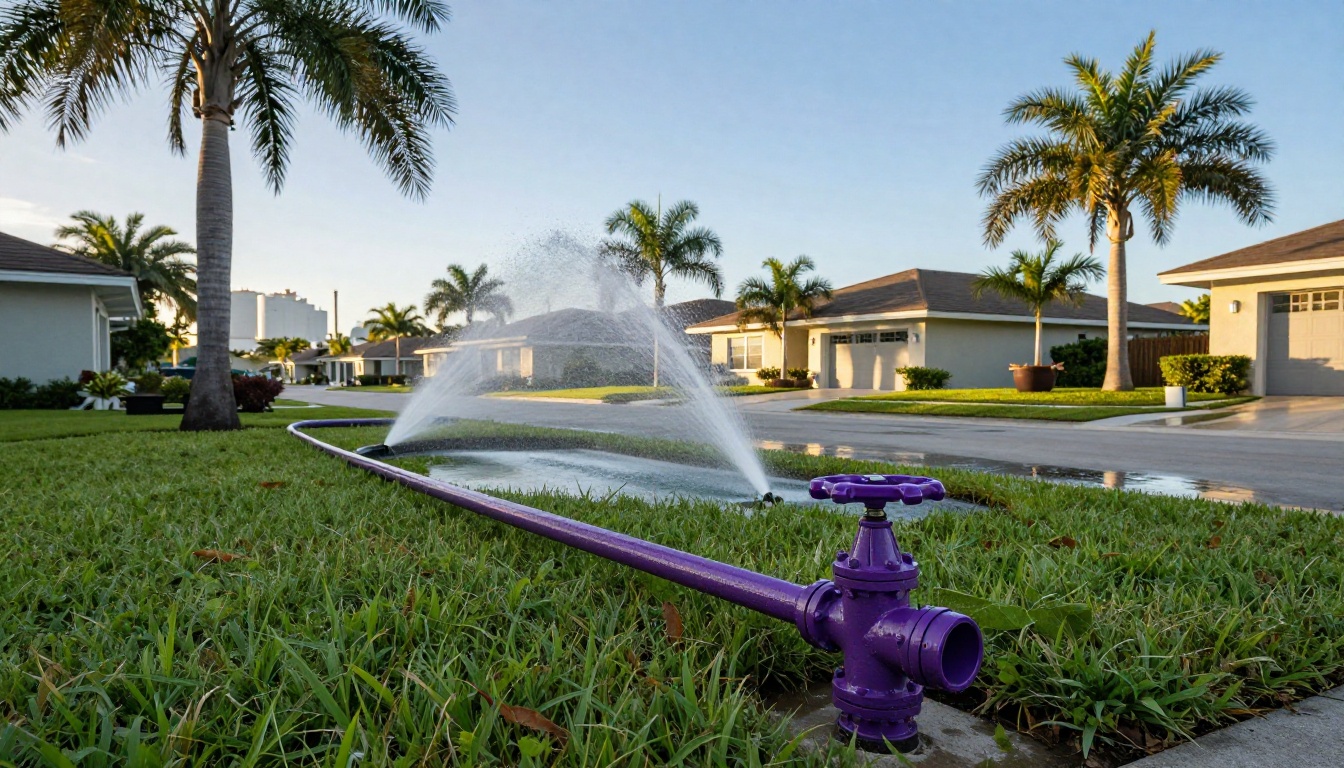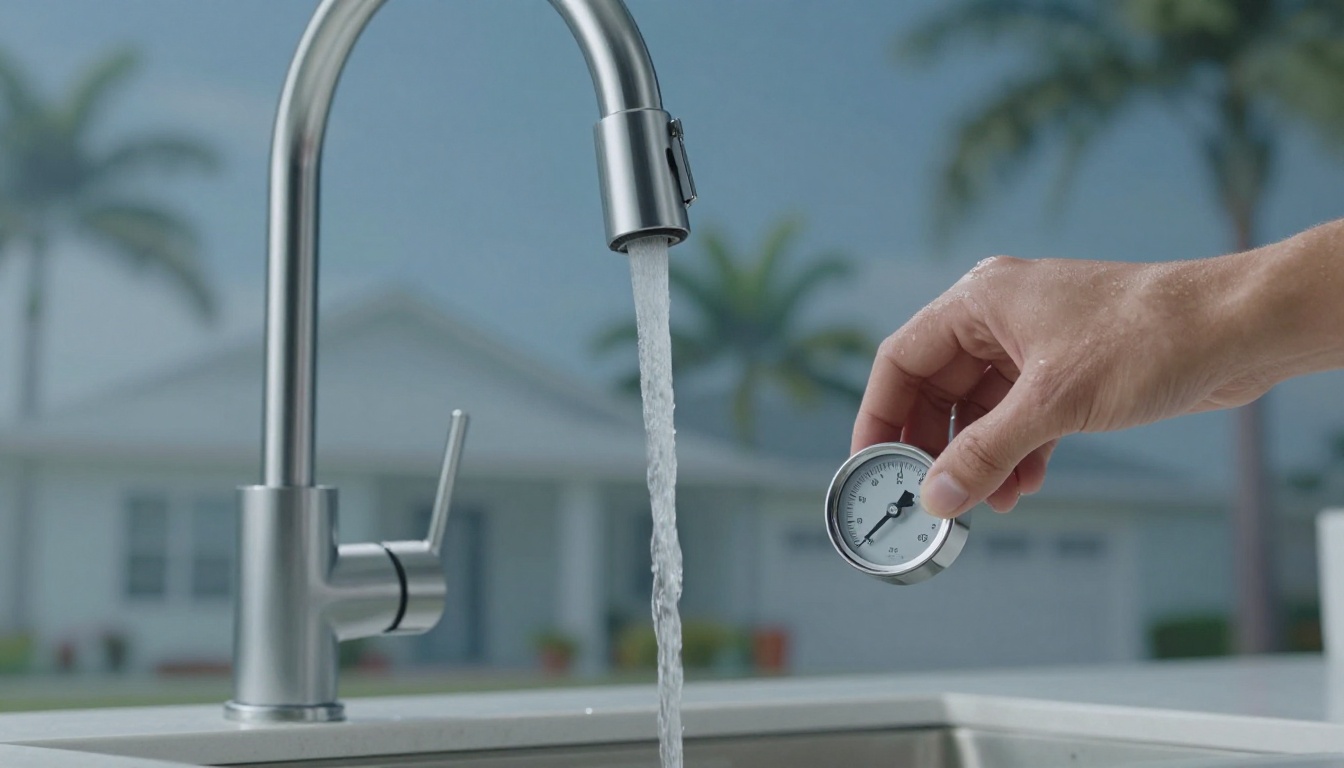Understanding Cape Coral's Water Quality: Signs You Need a Whole Home Filtration System
Understanding Cape Coral's Water Quality: Signs You Need a Whole Home Filtration System
Introduction
Cape Coral, known for its beautiful canals and waterfront homes, faces unique challenges when it comes to water quality. Recent reports have highlighted concerns about the city’s reliance on the Mid-Hawthorn aquifer and the potential impact of population growth on this vital resource. With an increasing number of residents moving to the area, understanding water quality has become more important than ever. Homeowners need to be aware of the risks posed by environmental factors such as groundwater depletion and contamination.
Water quality issues are not just a local concern; they affect every faucet, showerhead, and appliance in your home. For many Cape Coral residents, the growing strain on the aquifer system raises questions about whether municipal water treatment is enough. This makes it essential to stay informed about your water supply and take proactive steps to ensure safety. Fortunately, solutions like whole home filtration systems can provide peace of mind for families worried about their water quality.
How Cape Coral Sources and Treats Its Water
Cape Coral primarily relies on the Mid-Hawthorn aquifer as its main source of drinking water. The Utilities Department employs advanced treatment processes, including chlorination and filtration, to remove impurities and ensure compliance with health standards. However, sourcing water from this aquifer has become increasingly challenging due to overuse and development pressures. Groundwater levels are dropping, forcing the city to explore alternative water sources to meet demand.
Despite these efforts, some residents remain concerned about the long-term sustainability of Cape Coral’s water supply. Over-reliance on the aquifer and the potential for contamination from agricultural runoff or urban expansion make it critical for homeowners to understand how their water is treated. While municipal systems work hard to deliver clean water, additional safeguards may be necessary to protect your household.
Regulatory Standards and Recent Test Results
Cape Coral adheres to strict state and federal water quality regulations designed to protect public health. Annual water quality reports released by the city highlight compliance with standards set by the Environmental Protection Agency (EPA) and the Florida Department of Environmental Protection. These reports detail contaminant levels, treatment methods, and any potential risks identified during testing.
While these regulatory standards provide reassurance, they may not address all homeowner concerns. For example, certain contaminants might fall below actionable levels but still pose risks over time. Residents who want deeper insights into their water quality can access these reports online or request further clarification from local authorities. Understanding these results is key to making informed decisions about your home’s water needs.
Common Water Quality Concerns for Residents
One of the most pressing issues for Cape Coral residents is the presence of nitrogen and other potential pollutants in the water supply. Agricultural activities and urban runoff contribute to elevated nitrogen levels, which can lead to harmful algal blooms in nearby waterways. These blooms not only threaten aquatic ecosystems but also raise concerns about secondary contamination of drinking water sources.
Another challenge is the depletion of the Mid-Hawthorn aquifer, exacerbated by rapid population growth and excessive pumping. Low aquifer levels increase the risk of saltwater intrusion, which could compromise water quality even further. Although the city actively monitors these risks, some residents feel uneasy about relying solely on municipal assurances.
Finally, there’s the issue of aging infrastructure and its potential to introduce contaminants into the water supply. Even if the source water meets safety standards, old pipes and plumbing fixtures can leach harmful substances like lead or copper. This combination of factors underscores why many homeowners consider additional filtration measures, such as those offered by Infinity Plumbing SWFL, to safeguard their families.
Potential Health Effects of Water Contaminants
Exposure to common water contaminants can have serious health implications, particularly for vulnerable populations like children, pregnant women, and the elderly. Nitrogen compounds, for instance, have been linked to respiratory issues and developmental problems in infants. Meanwhile, heavy metals like lead and copper can cause neurological damage and impair cognitive function over time.
Regional water advocates warn that even low levels of exposure to certain contaminants can accumulate in the body, leading to chronic health conditions. Long-term consumption of water with elevated pollutant levels may increase the risk of cancer, kidney disease, and reproductive disorders. Given these risks, it’s crucial for Cape Coral residents to take steps to minimize their exposure through proper filtration and regular testing.
What Is a Whole Home Filtration System?
A whole home filtration system is designed to treat all the water entering your house, ensuring cleaner water for drinking, bathing, cooking, and cleaning. Unlike point-of-use filters, which target specific areas like kitchen sinks, whole home systems filter water at the point of entry before it branches out to different faucets and appliances. This approach provides comprehensive protection against a wide range of contaminants.
These systems often incorporate multiple stages of filtration, including sediment removal, carbon filtration, and advanced technologies like reverse osmosis. In Cape Coral, where sediment and chemical pollutants are common concerns, whole home filtration offers a reliable solution for improving water quality throughout the household. Companies like Infinity Plumbing SWFL specialize in installing tailored systems that address local water challenges effectively.
Signs You Need a Whole Home Filtration System
Homeowners should pay attention to visible signs of poor water quality, such as unusual odors, metallic tastes, or cloudy appearance. Frequent plumbing issues, such as clogged fixtures or stained laundry, may also indicate high levels of sediment or minerals in your water. These symptoms suggest that your current water supply may benefit from enhanced filtration.
Invisible signs are equally important. Skin irritation, dry hair, or unexplained illnesses among family members could signal the presence of harmful contaminants. Even if your water looks and smells fine, invisible threats like bacteria or heavy metals can still lurk undetected. Regular water testing is essential to identify these hidden dangers.
Monitoring your health and observing changes in your water’s behavior can help you decide whether a whole home filtration system is necessary. If you notice any warning signs, consulting a professional like Infinity Plumbing SWFL can provide clarity and guide you toward the best solution for your home.
Types of Whole Home Filtration Systems Best Suited for Cape Coral
For Cape Coral residents, whole home filtration systems targeting sediment, organic compounds, and chemicals are particularly effective. Sediment filters remove particles like sand and rust, while carbon filters excel at eliminating chlorine, volatile organic compounds (VOCs), and unpleasant odors. Reverse osmosis systems offer an additional layer of purification, ideal for removing dissolved salts and heavy metals.
Choosing the right system depends on your specific water composition and household needs. Local experts at Infinity Plumbing SWFL can assess your situation and recommend a customized solution. Whether you’re dealing with hard water, high sediment levels, or chemical contamination, there’s a filtration system designed to address Cape Coral’s unique water challenges.
Professional Testing vs. DIY Water Testing
Hiring a certified professional for water quality analysis provides accurate and detailed results, often identifying contaminants that DIY kits might miss. Professionals use advanced equipment to detect trace elements and provide comprehensive reports tailored to your home’s water supply. This service is especially valuable in Cape Coral, where changing environmental conditions can affect water quality unpredictably.
On the other hand, DIY testing kits offer convenience and affordability, allowing homeowners to perform basic assessments quickly. While these kits are useful for detecting common issues like pH imbalances or chlorine levels, they may lack the precision needed to identify more complex problems. For peace of mind, combining both approaches—starting with a DIY test and following up with professional analysis—can ensure thorough coverage.
The Installation Process: What Homeowners Should Expect
Installing a whole home filtration system typically involves several steps, starting with an initial consultation and site assessment. A licensed plumber will evaluate your plumbing setup, determine the best location for the system, and discuss any necessary permits. The installation itself usually takes one to two days, depending on the complexity of your home’s layout.
Costs vary based on the type of system chosen and the scope of the project. In Cape Coral, homeowners can expect to invest in both the equipment and professional labor. Working with experienced installers, such as those at Infinity Plumbing SWFL, ensures compliance with local codes and optimal performance of your new filtration system.
Maintenance and Ongoing Care for Filtration Systems
Regular maintenance is essential to keep your whole home filtration system functioning efficiently. Tasks include replacing filters according to the manufacturer’s recommendations, typically every three to six months, and inspecting components for wear and tear. Neglecting maintenance can lead to reduced performance and potential system failure.
Warning signs of malfunction include decreased water pressure, unusual noises from the system, or persistent water quality issues. Cape Coral residents often encounter challenges related to sediment buildup or chemical imbalances, making timely care even more critical. Partnering with a trusted service provider like Infinity Plumbing SWFL ensures your system remains in top condition year-round.
Environmental and Community Impact
While whole home filtration systems offer significant benefits for individual households, their widespread adoption also has broader implications for the environment and community. On the positive side, reducing reliance on bottled water helps decrease plastic waste, contributing to a healthier planet. Additionally, improved water quality can enhance overall community well-being.
However, there are potential downsides, such as increased energy consumption associated with filtration processes. Balancing these impacts requires thoughtful management strategies. Local advocacy groups in Cape Coral emphasize sustainable practices, encouraging residents to adopt eco-friendly solutions that align with regional water conservation goals.
Frequently Asked Questions (FAQ)
Is Cape Coral’s water safe to drink without additional filtration? Municipal water treatment ensures compliance with safety standards, but additional filtration can provide extra protection against contaminants. Many residents opt for whole home systems for added peace of mind.
How often should I test my home’s water in Cape Coral? It’s recommended to test your water annually, or more frequently if you notice changes in taste, smell, or appearance. Regular testing helps detect emerging issues early.
What’s the most common contaminant found in Cape Coral’s water? Nitrogen compounds and sediment are among the most frequently detected contaminants, primarily due to agricultural runoff and aquifer depletion.
Will a whole home filtration system impact water pressure? Modern systems are designed to minimize pressure loss, but slight reductions may occur. Proper installation and maintenance can mitigate this effect.
How much does a typical whole home filtration system cost in Cape Coral? Costs vary depending on the system type and installation complexity, ranging from $1,000 to $5,000. Consulting with professionals like Infinity Plumbing SWFL can provide a tailored estimate.
Conclusion
Being proactive about water quality is essential for Cape Coral residents, given the unique challenges facing the region’s water supply. Even though municipal reports indicate compliance with safety standards, additional filtration measures can offer an extra layer of protection for your family. By staying informed and taking action, you can ensure cleaner, safer water throughout your home.
If you’re experiencing any warning signs or simply want to learn more about improving your water quality, don’t hesitate to reach out to experts like Infinity Plumbing SWFL. Regular testing, professional consultations, and prompt installation of a whole home filtration system can make a significant difference in your household’s health and comfort. Remember, clean water isn’t just a luxury—it’s a necessity for a thriving home and community.




Get a Free Estimate
Got a plumbing issue? We’re here to help! Whether you need emergency repairs, routine maintenance, or have a question about our services, our team is ready to assist you.
